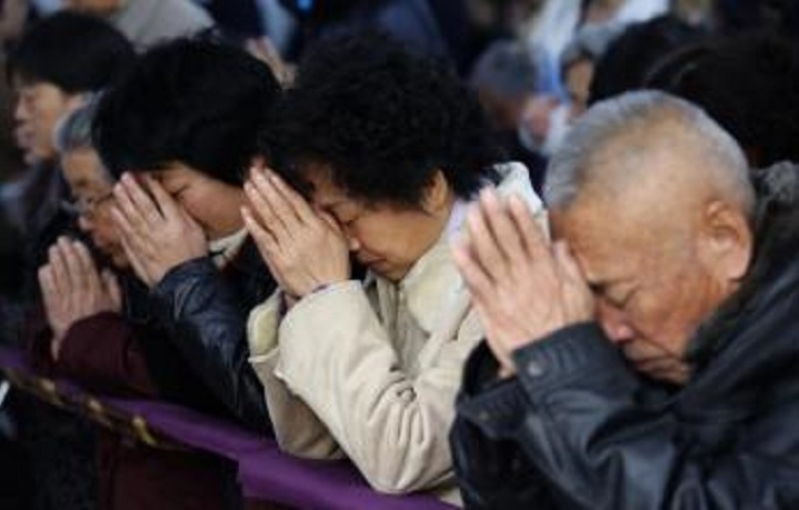
China has placed new restrictions on religious gatherings, online discussion of religious matters, and the financing of religious groups in an effort to "fight extremism and restrict faith practiced outside organizations approved by the state."
Reuters reports that the new restrictions, which will go into effect Feb 2, 2018, also increase existing restrictions on unregistered religious groups - such as house churches - to include explicit bans on teaching about religion or going abroad to take part in training or meetings.
Additionally, the state will have further influence over religious education, with explicit provisions on the establishment and registration of religious colleges.
The document, passed by Premier Li Keqiang on Thursday, updates a version of rules put into place in 2005 to allow further regulation of religion and better reflect "profound" changes in China and the world.
"Religious affairs maintenance should persist in a principle of maintaining legality, curbing illegality, blocking extremism, resisting infiltration and attacking crime," the regulations say.
"Any group or individual must not create conflict or contention between different religions, with a single religion or between religious individuals and non-religious individuals."
Over the past year, President Xi Jinping has directed the party to "Sinicize" - or bring under Chinese tradition - the country's ethnic and religious minorities in efforts to counter religious "extremism" and emphasized the need to guard against foreign infiltration through religion.
Beijing believes Christianity, whose followers are said to rival in number the 85 million members of the Communist Party, "poses a major threat" to its long-term stability. Tibetan Buddhists, Uighur Muslims, and Falun Gong practitioners were also said to be severely targeted for their faith.
Registered Christian congregations, also known as Three Self Churches, are government-approved and adhere to a strict set of rules laid out by the Communist party. Unregistered, sometimes called underground or house churches, operate outside government control, and are thus technically "illegal."
In recent months, dozens of house churches have been raided by authorities as China's government, and in previous years, authorities bulldozed hundreds of churches and removed thousands of crosses in addition to imprisoning -- and even torturing -- pastors and human rights lawyers.
Last week, video footage emerged showing thousands of Christians attempting to block bulldozers from demolishing church property in Wangcun village in China's northern Shanxi province. They can be heard shouting "Jesus save me!" and "Mother Mary, have pity on us" as government officials surround them.
Because of these ongoing abuses, the country is ranked 39th on Open Door USA's World Watch List of countries where Christians face the most persecution.
In an interview with The Gospel Herald, China Aid President Bob Fu shared how Chinese citizens are "thirsty" for the truth of the Gospel - particularly in light of the oppressive nature of the Communist government.
"The authentic love and compassion that is manifested in the lives of believers has been a major factor in the spread of the Gospel," he said, citing a Purdue University study that found the country is on course to become the world's "most Christian nation" by 2030.
"Under Communism, trust among the Chinese was destroyed," Fu revealed. "But the church was the opposite - Christians were the first ones to love those with disease and illnesses, the first ones to care about the elderly, the vulnerable, the children."
Despite ongoing persecution, Fu added that he is "more optimistic than ever" that the Gospel will continue to impact the country in a tremendous way.
"While we still feel the pain and suffering of our brothers and sisters in China, we have seen the Good News spark the rapid growth of Christianity," he said. "We have seen a great revival - more and more believers are becoming actively involved. I believe that in the end, the Communist Party will be called the 'Servant of the Lord.'"







